Clare is holding a healthy-looking umbrella plant (Heptapleurum arboricola) with her name on it. She has grown it on from a discarded broken stem and is nurturing it to give to her mum when she is released next year. Clare is one of a small team of prisoners at East Sutton Park women’s open prison in Kent who are growing and tending houseplants as part of The Glasshouse project, a social enterprise co-founded by project director Kali Hamerton-Stove and social entrepreneur Melissa Murdoch.
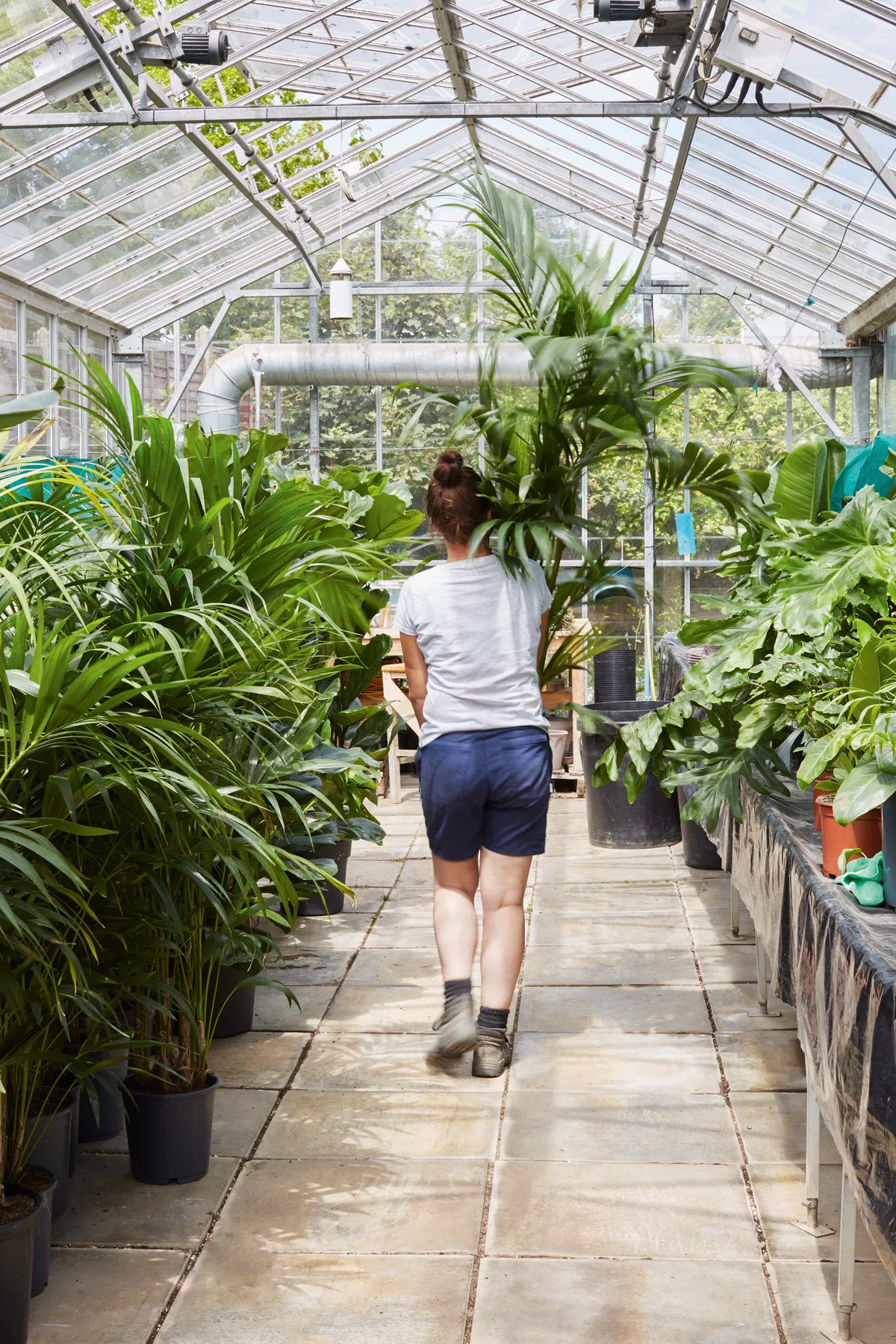
The scheme’s aim is to help women rehabilitate when they leave prison by offering horticultural training and improved employment opportunities. Kali and Melissa hit upon the idea for it in 2019 when they learned that two of the glasshouses at the prison were largely unused, due in part to cuts in land-based training in recent years. Post-release, women can face significant problems finding a job and somewhere safe to live. The insecurity this engenders can lead to issues with reoffending and this is where Kali and Melissa felt they could do something to help.
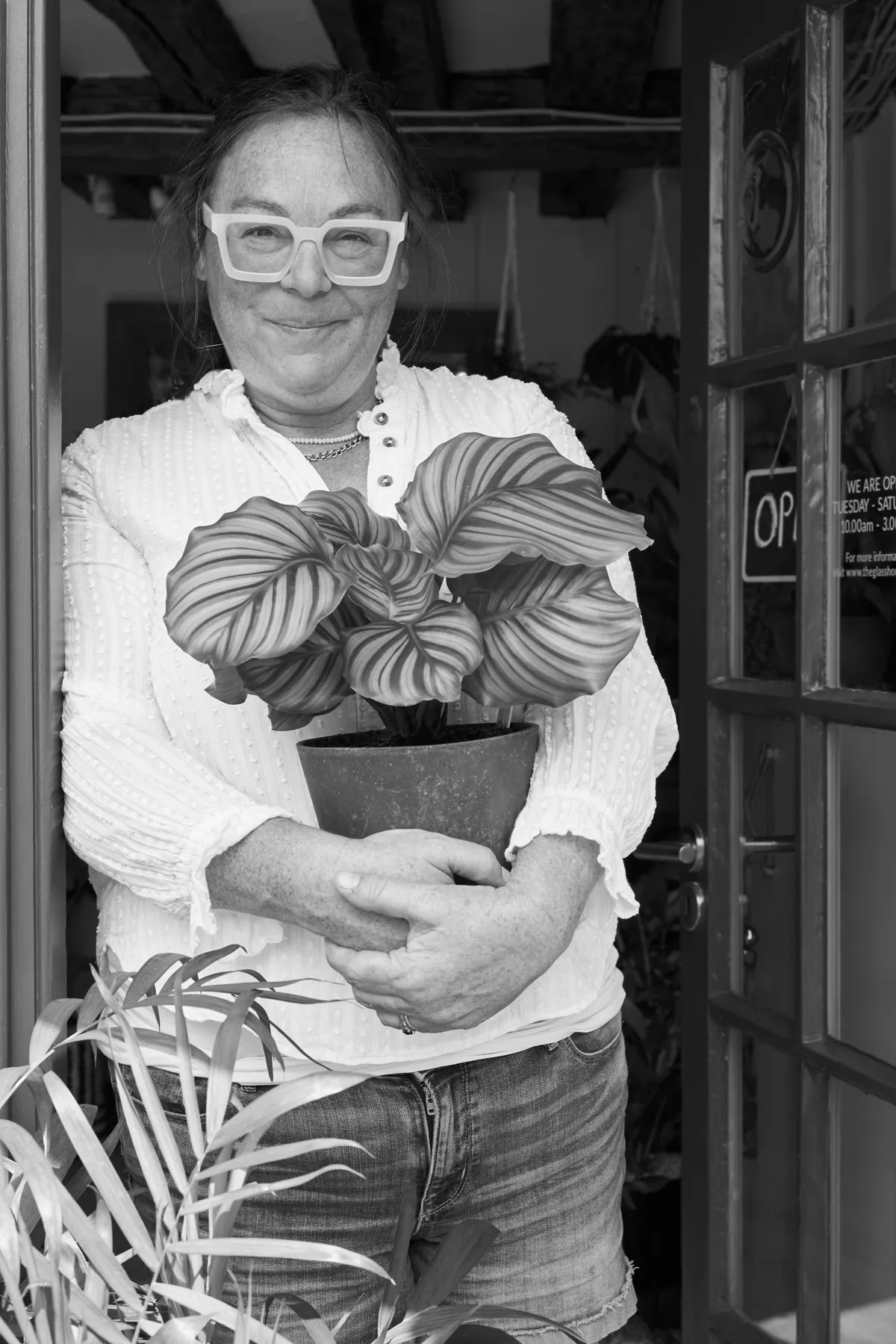
Tennessee-born Kali has a background in international marketing and ran her own café/plant shop locally, so botanics were a natural fit. With Melissa, she formulated an idea to train up to ten women at a time to raise houseplants in the glasshouses and their initial business plan, supported by a £50,000 director’s loan, was based around plantscaping. This entails sending in a team to install and maintain houseplant schemes in corporate settings, which generates an ongoing income stream. To this they have added online sales, corporate gifting and now a smart plant shop (called The Glasshouse) in nearby Cranbrook, where the women gain experience working in a retail environment.
The project began in February 2020 and, despite the many challenges – both of Covid and of learning how to integrate into the prison’s system – it has thrived, doubling its turnover in two years. All profits are reinvested to grow the programme and to help ex-offenders rehabilitate. Women who apply to work in the scheme train on site for an NVQ in horticulture with modules tailored to houseplant cultivation, skills they can take on into further employment post-release. They also receive practical, mental and emotional support, provided by Maria Love, who has joined the project as head of social impacts.
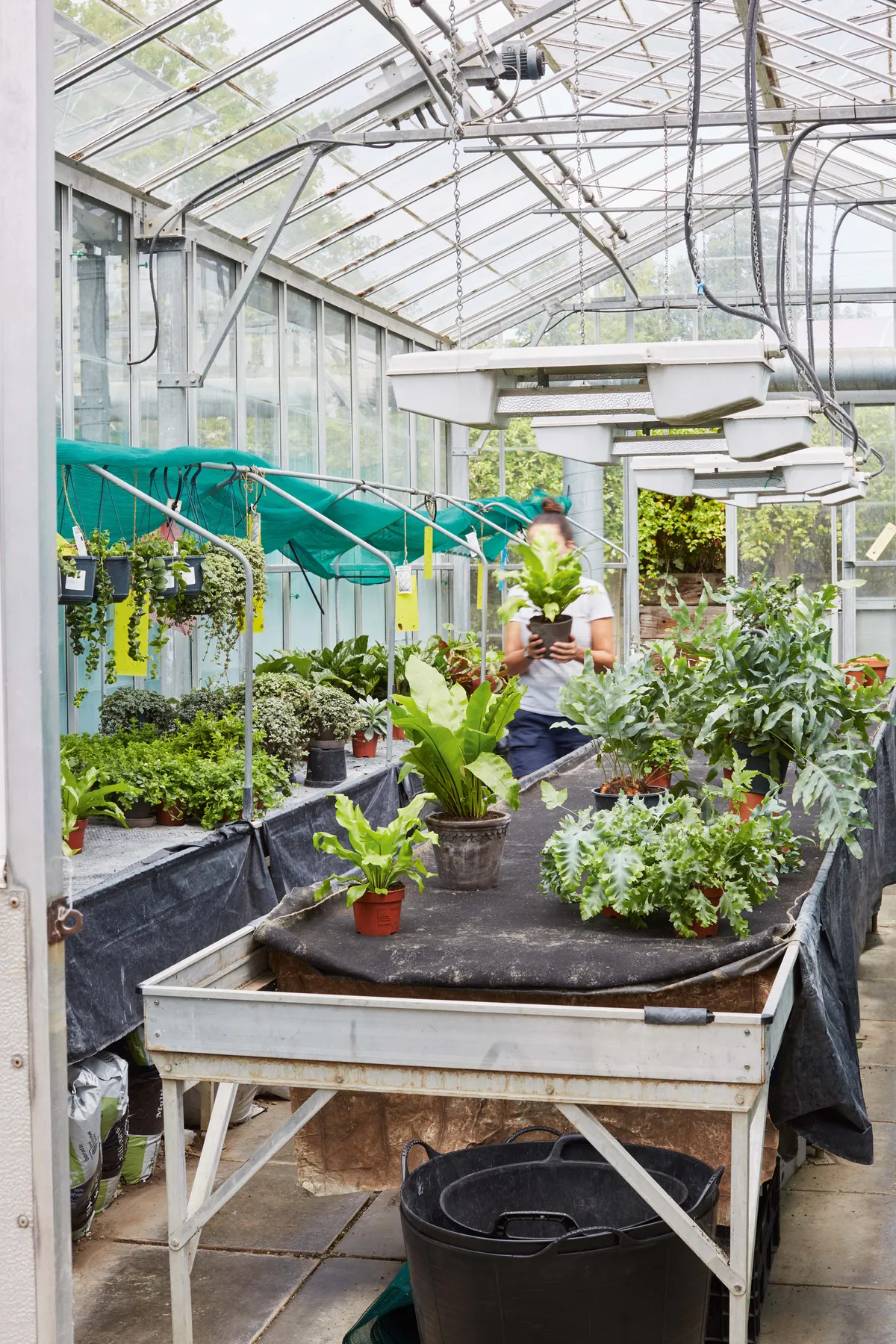
Kali has set high standards: plants are bought in small and grown on, being repotted into peat-free compost tailored to each plant. Propagation skills are taught too, although there isn’t enough space to do this on a commercial scale. Their houseplants are lush and healthy and those for sale online and in the shop are planted up into fine Italian clay pots with matching saucers. Mail-order packaging is all biodegradable.
Clare and two of the other women, Katie and Carla, speak of the benefits that the scheme has brought them. Clare and Katie both say that plant care has become a vocation and they have ambitions to keep working for the project when they leave prison. “It’s my calling now,” says Katie. “Nature is so soothing and being in the glasshouses brings me a sense of peace.” Clare agrees. “Working in the shop makes you feel like a normal person,” she says, “and helps you adjust back into society.” Meanwhile Carla reports that her family has noticed a positive change in her since she started working with plants. “Being here has given me a sense of purpose and structure to my day,” she says. “I feel really lucky to be part of it.”
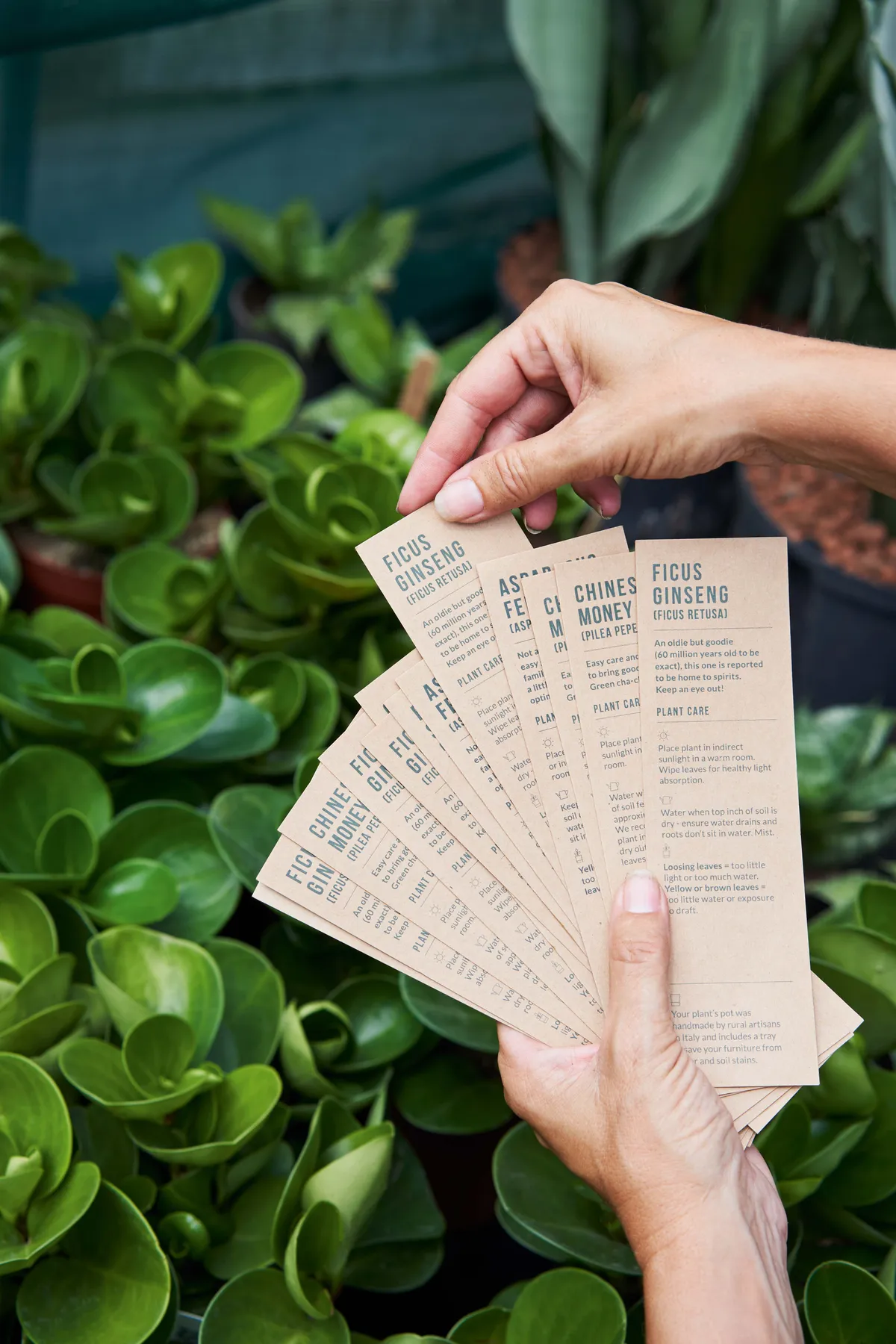
Kali notices the difference in the women in the programme too. “During Covid, they’d come into the glasshouses pent up and upset. By the end of the day you could see them unwinding, be more at peace.” She revels in seeing them gain skills and improve in confidence and ability. “In prison they have no control over anything in their lives and when you see them standing there giving advice to customers they are in control for once.”
The response to the project has been very positive and Kali now has ambitions to roll out the scheme to other prisons. It is possible she may expand into men’s prisons but for now, she is focusing on women. “We’re seeing the benefit to ex-offenders exactly as we envisioned,” she says. “Our aim is to set them on a path to find a good second chance in life and it’s incredible that, through growing houseplants, we have been able to do that.”
Learn more about the project at theglasshouse.co.uk
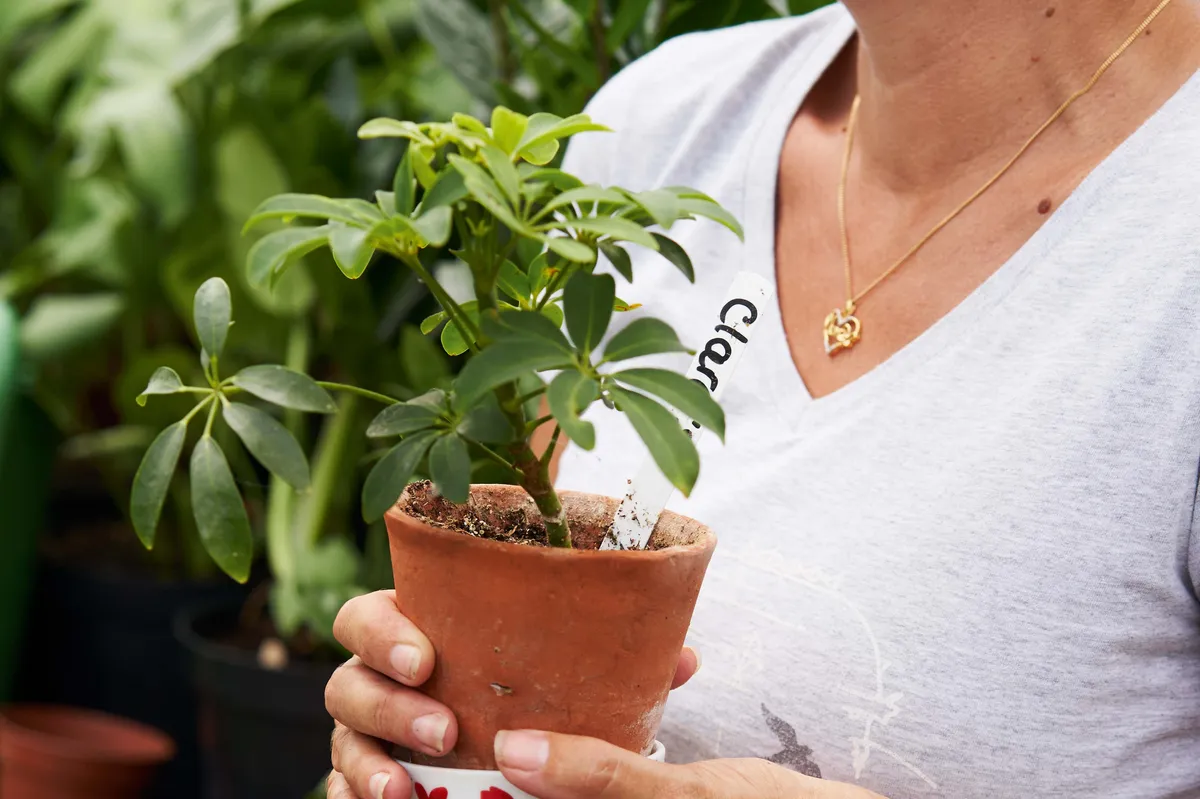
Clare holds her little umbrella plant nurtured from a rescued offcut, and planned as a gift for her mum.
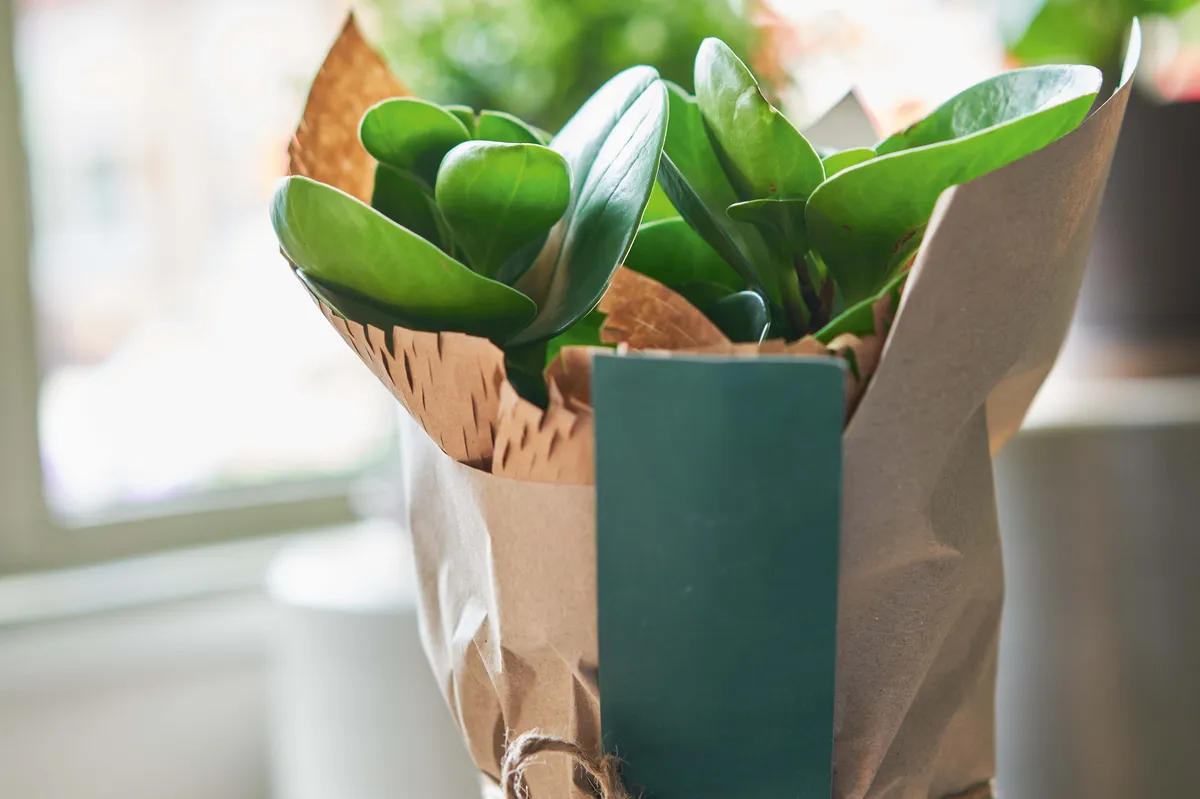
Mail-order plants are beautifully gift-wrapped in biodegradable paper packaging and card.
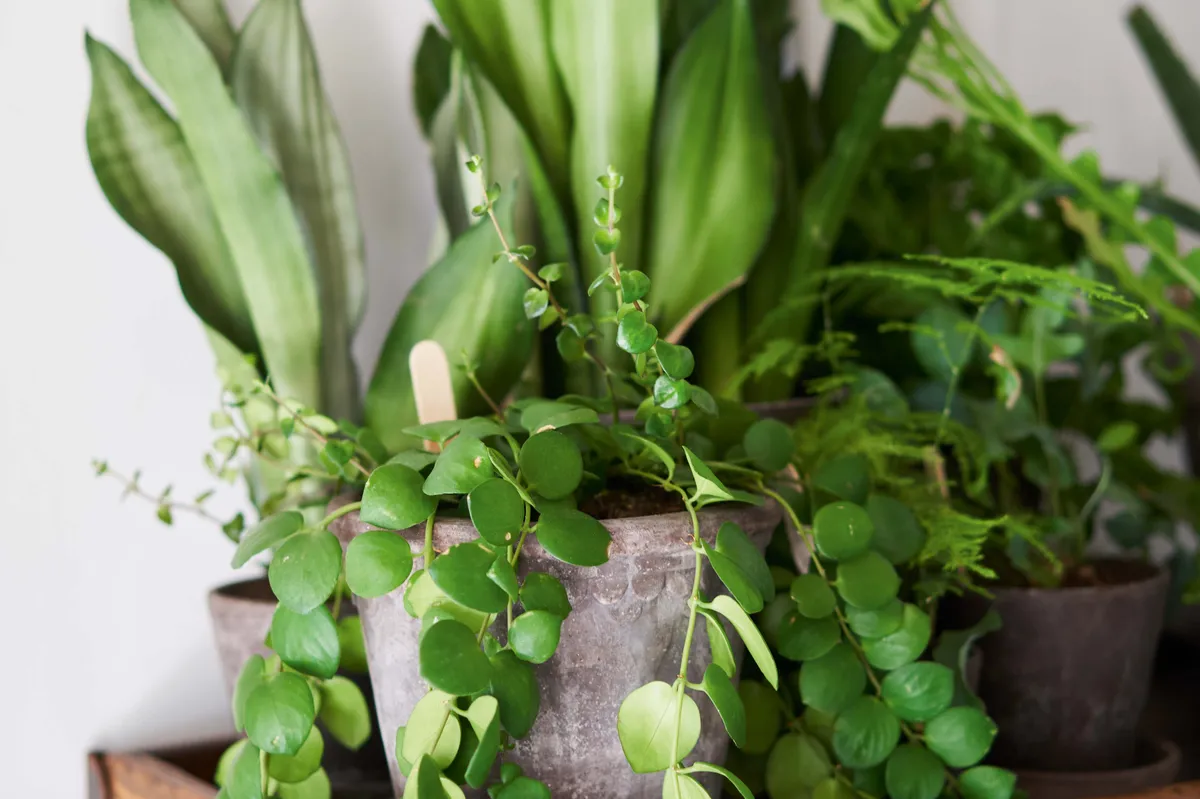
A selection of the project’s houseplants. The women are taught how to keep all the plants in tip-top condition and they repot them in custom-mixed, peat-free compost.

Working in The Glasshouse shop three days a week, the women gain experience in arranging the displays and interacting with customers.
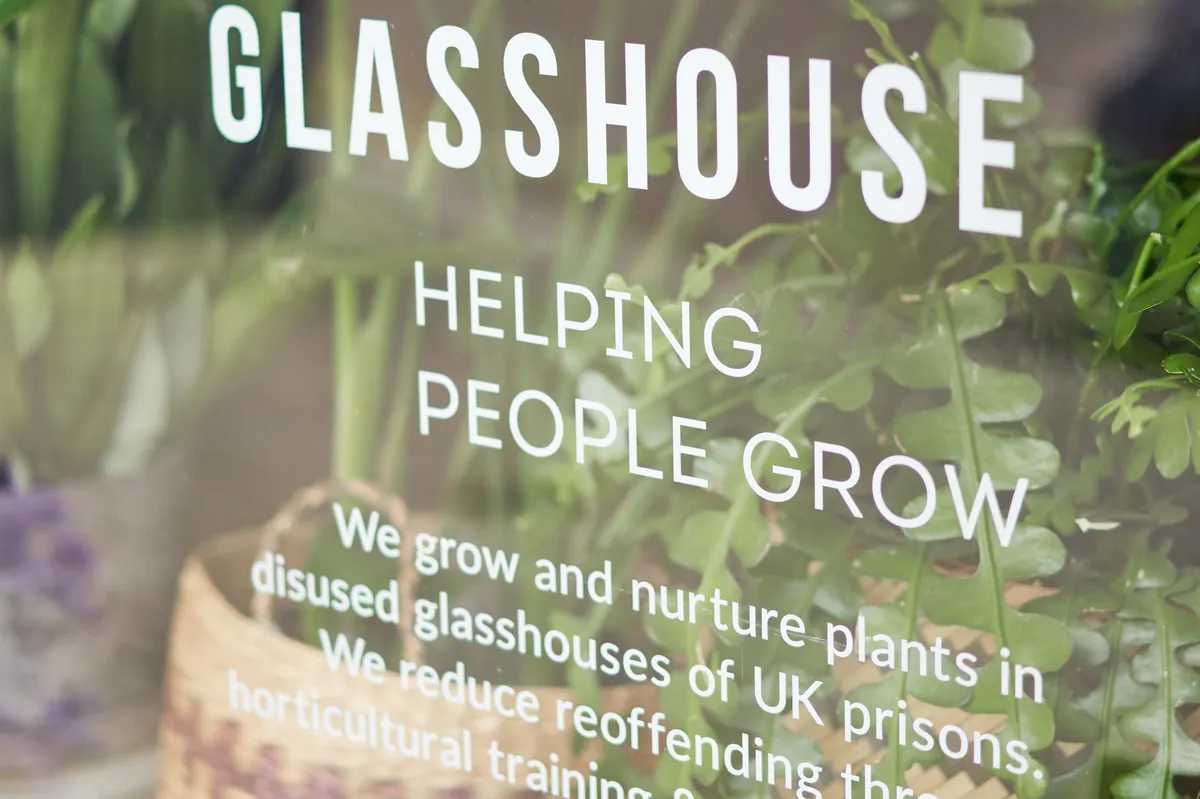
Signage on the Cranbrook shopfront explains to customers how the plants have been raised in prison glasshouses with a view to reducing reoffending rates through horticultural training.
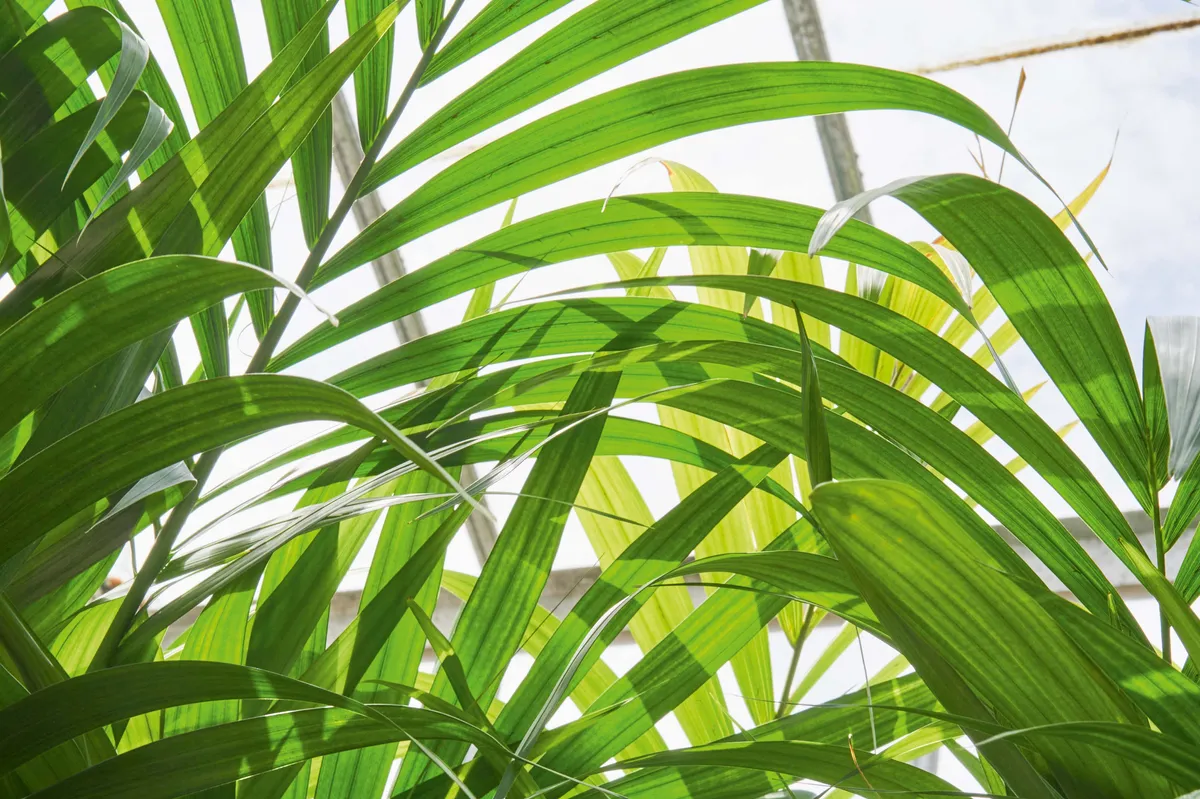
Large specimens such as these parlour palms are used in plantscaping schemes which are installed by the women.
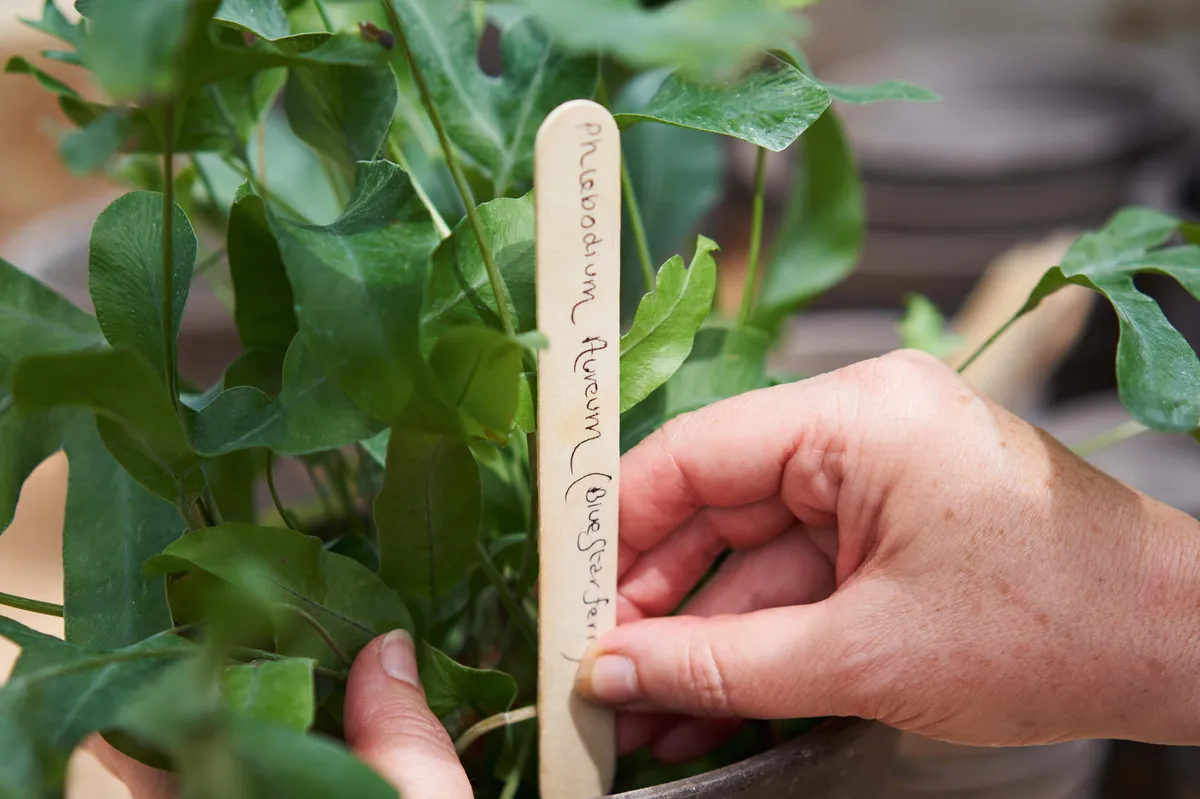
Training is given in identifying and then carefully labelling all the plants being cared for.
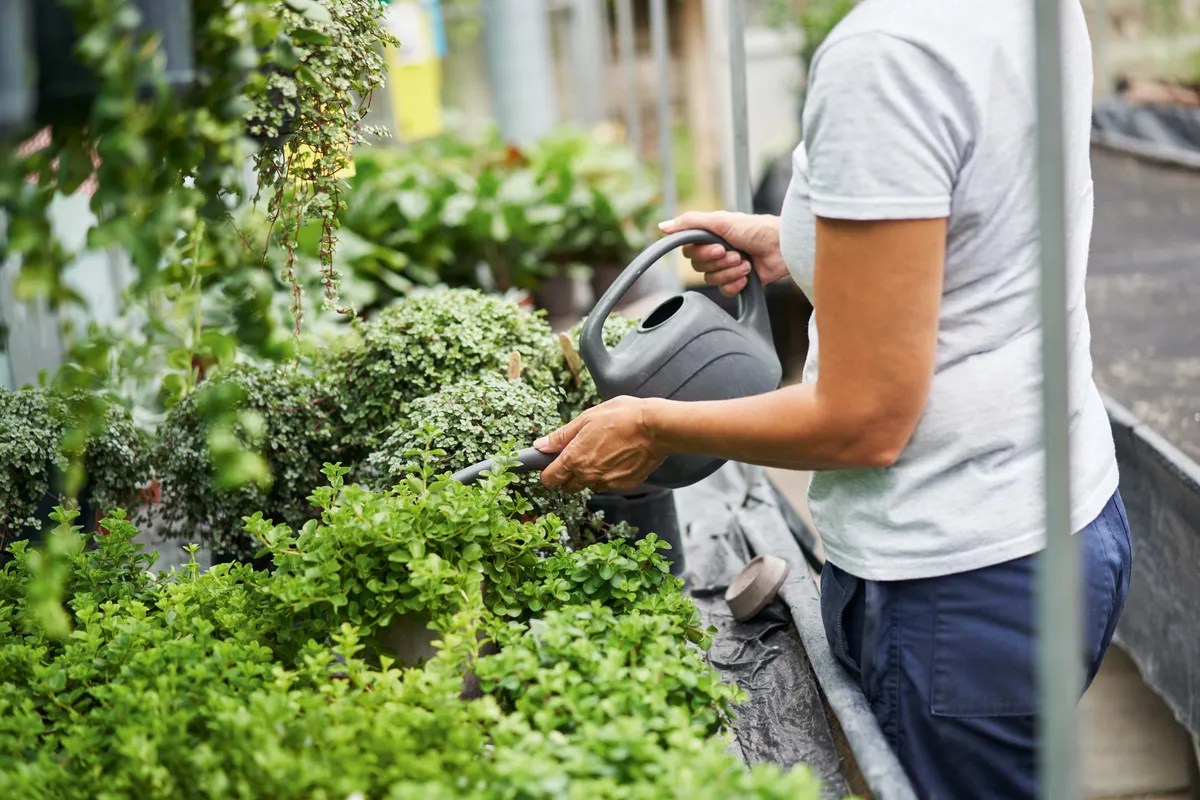
Nurturing the plants on a day-to-day basis is both satisfying and calming for the women who spend time here.
This article appeared in the October issue of Gardens Illustrated magazine. Subscribe here.